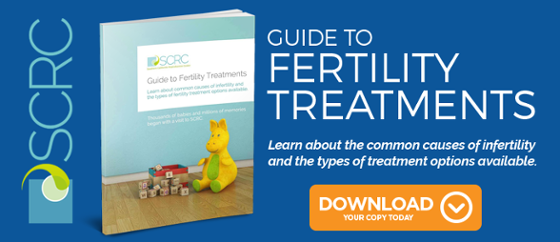
Being proactive about your fertility is one of the most empowering decisions you can make as a woman. Life moves fast, and in reality, our window of peak fertility is relatively short. Sometimes we discover that we’re happiest with a completely independent lifestyle but know that having a child is what we’ve always wanted. Sometimes the perfect partner doesn’t appear “in time” and we aren’t willing to compromise on love or on our dreams of having a baby. Instead of waiting for the stars to align, many single women are forging their own paths to parenthood with the help of assisted reproduction.
Fertility testing and understanding your own fertility
If you are thinking about trying to conceive with the help of donor sperm, or if you’d like to take steps to preserve your fertility, you need a clear and accurate picture of your current fertility. Your reproductive specialist will take a medical history, including questions about your lifestyle, menstrual cycle and sexual health. A preliminary fertility investigation also includes blood tests such as hormone levels and STI screening and an ultrasound to check your ovarian reserve or number of potential eggs. Depending on the findings, your doctor may order further testing. You can read all about fertility tests for women in our in-depth blog post here. The results of these tests can be used to develop an individualized treatment plan, based on your body’s unique needs.
Deciding to use a sperm donor: what you need to know
Choosing to use a sperm donor to conceive can be a daunting task. Some women have friends or family members who are willing to go through the processes with them. Known donor treatments require careful emotional and legal preparation in order to ensure that both parties are absolutely clear on their familiar and legal relationship to any resulting child. You should both have your own lawyers and a clear donor agreement.
More commonly, the choice is to pick an anonymous donor from a registry. You can view profiles with non-identifying information about the donor’s age, height, hair and eye color, ethnicity, religion, educational history and more. Registered donors are strictly screened with careful health and genetic tests, psychological interviews, and more. You can learn more about the process of choosing a sperm donor in our recent post.
Fertility treatments for single women: your options
Once you know where you stand with your fertility and have decided on a sperm donor, you are ready for the next step. Your doctor will discuss with you his/her recommendation based on the above testing, but in general, as a single woman your fertility treatment options include:
Intrauterine insemination (IUI) with donor sperm
This is often the first line of treatment for young women with no known fertility issues. IUI is a relatively noninvasive and affordable option. In IUI, a carefully prepared sperm sample is placed directly in the woman’s uterus using a very thin catheter in order to aid conception. IUI may be performed with or without the help of fertility medications. Natural cycle IUI is when no fertility medications are used and the sperm's placement is timed to match a woman’s own ovulation. If this is not successful after two or more attempts, or if there are factors which suggest that the patient may need assistance to ovulate, fertility medications are used to stimulate her ovaries to ovulate, and then IUI is performed. Learn more about IUI and whether you might be a good candidate.
IUI success rates, like all fertility treatments, will depend on a woman’s age, infertility diagnosis (if any) and her general health. Women under 35 generally have a 10% to 20% chance of pregnancy with each cycle.
In vitro Fertilization (IVF) with donor sperm and/or donor eggs
If you are over 35 or have complicating fertility challenges, IVF may be the best choice for you. IVF is a process which usually begins with a patient taking fertility medication in order to stimulate her ovaries to mature multiple eggs. After careful monitoring, she then takes a “trigger shot” of hormones to induce ovulation. Eggs are then retrieved in a short procedure performed under light anesthesia. Once the eggs have been retrieved, they are mixed with donor sperm in the lab. The fertilized eggs are then referred to as embryos, and these are incubated for three to five days to monitor growth and development. The highest quality embryo is placed in the woman’s uterus in a separate procedure known as an embryo transfer (any remaining embryos can be frozen for later use). Then comes a two-week wait before she can return to the clinic for a pregnancy test.
If you have good ovarian reserve and egg quality, IVF using your own eggs and donor sperm can be a highly effective treatment. You also have the option of using donor eggs, which can greatly increase the chance of a successful pregnancy for older women or those with poor ovarian reserve. This entails a young woman that you select (similar to how you pick the donor sperm) undergoing the stimulation and retrieval of eggs. The embryos are created using the donated eggs and the donor sperm you have selected. The resulting embryo is transferred to you to carry the pregnancy. Find out if you might be a good candidate for IVF treatment.
IVF surrogacy with donor sperm
If you are unable to carry a pregnancy yourself, you can still have a baby who shares your genetic heritage with the help of a gestational surrogate. You will undergo the first part of an IVF cycle (undergoing the stimulation and egg retrieval) and the gestational surrogate will also be taking medication in order to sync her menstrual cycle with yours. The embryos created with your eggs and the donor sperm can then be transferred to the surrogate, who will carry the pregnancy. You can find out more about the gestational surrogacy process here, or learn some of the reasons you might need a surrogate here.
Egg and/or embryo freezing to preserve your fertility
Many young single women know that they want to become mothers someday, but also want to wait until the timing is right before bringing a child into their lives. You might be crushing it professionally right now, or furthering your education, or waiting to see whether the partner of your dreams is really out there. Egg freezing offers another option. It’s not a guaranteed baby, but by stopping the clock on your eggs aging, it does give you a better chance to conceiving a few years down the line. The opportunity to freeze eggs now to use in later fertility treatments can also be surprisingly affordable: as this option becomes more popular, costs are falling and many clinics offer payment plans which put it within reach of more young women than ever. Discover more about the egg freezing process here.
Embryo freezing is another great option, which just requires one extra step. You can create embryos using your eggs and donor sperm and then freeze them for later transfer. Success rates using frozen embryos can be higher than IVF using frozen eggs alone. This can be a very attractive choice for anyone who knows she wants to parent a child independently but wants to wait for a couple of years before getting pregnant.
Perhaps you are ready to become a mother now, but you’ve found yourself single by choice or circumstance. Maybe you’re thinking about the future and want to do everything you can to ensure that you can become a parent on your own terms when you’re ready. Wherever you are in your life, it’s so important to know your options so that you can make the best decision—for yourself, and for your future family. Don’t wait to talk to your doctor about your fertility and your plans for the future. The sooner you know where you stand, the better.






